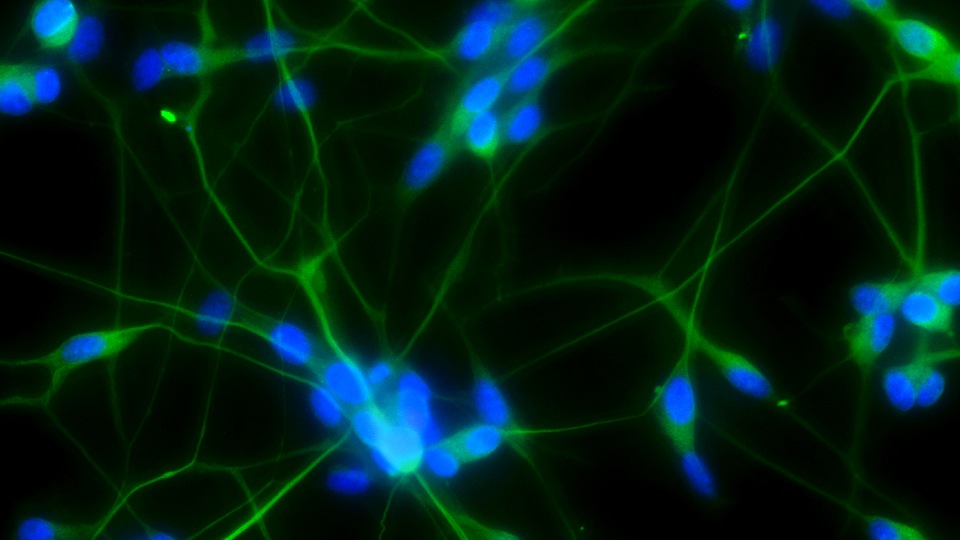The Neu-ChiP project has been awarded €3.5m (£3.06m) to show how neurons – the brain’s information processors – can be harnessed to supercharge computers’ ability to learn while dramatically cutting energy use.
Led by Aston University, the project is an international collaboration involving academics from Loughborough University’s Department of Chemistry and partner institutions in the UK, France, Spain, Switzerland and Israel.
The research team is now embarking on a three-year study to demonstrate how human brain stem cells grown on a microchip can be taught to solve problems from data, laying the foundations for a “paradigm shift” in machine learning technology.
Use of AI is becoming ever more prevalent in areas as diverse as healthcare, finance, autonomous vehicles and speech recognition, right through to recommending films through on-demand services like Netflix.
The ‘big four’ tech companies - Apple, Google, Amazon and Facebook – and many others are investing heavily in machine learning to tailor their products and better understand their customers.
However, current electronic approaches to machine learning have limits, requiring ever-growing computing power and high energy demands.
The recent trend towards ‘neuromorphic computing’, which aims to mimic human neural activity electronically, is hampered by the inherent limitations of conventional electronics.
In contrast, human brain cells effortlessly combine these functions and have extremely low power demands, requiring only a small volume of a nutrient-rich solution to operate.
In the Neu-ChiP project, the team will layer networks of stem cells resembling the human cortex onto microchips. They will then stimulate the cells by firing changing patterns of light beams at them.
Sophisticated 3D computer modelling will allow them to observe any changes the cells undergo, to see how adaptable they are. This imitates the ‘plasticity’ of the human brain, which can rapidly adapt to new information.
The project, funded by the European Commission’s Future and Emerging Technologies (FET) programme, is also expected to produce new knowledge about the functioning of the brain which could be used to develop novel stem cell-based treatments.
The Loughborough scientists, led by Dr Paul Roach, will focus largely on the microfabrication [the process of fabricating miniature structures of micrometre (1×10−6 m) scales and smaller] of cell-based devices.
“Here at Loughborough, we have many current projects utilising our cutting-edge clean room fabrication facilities to produce micro-scale control over cell-surface interactions”, Dr Roach explained.
“Surface chemical and structural characteristics can be precisely designed to aid the construction of very complex living cell circuits.
“We have used these to model neurological diseases and here we apply our methods to help design revolutionary biological computers.”
He continued: “The ambition is to specifically design and fabricate living neuronal cell circuits using human-derived induced pluripotent stem cells.
“This work really brings together an exciting interdisciplinary team of researchers to build on our individual strengths and interests. The focus of this project is on revolutionising the way we analyse information using specifically designed complex living neuronal circuits.”
Professor David Saad, of Aston University, added: “Our aim is to harness the unrivalled computing power of the human brain to dramatically increase the ability of computers to help us solve complex problems.
“We believe this project has the potential to break through current limitations of processing power and energy consumption to bring about a paradigm shift in machine learning technology.”
